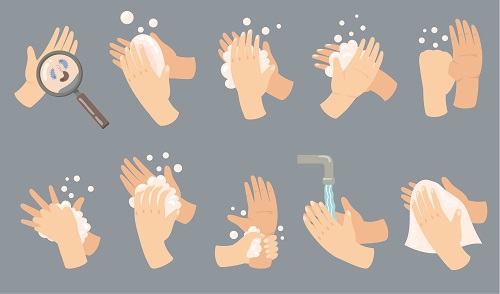Intimate hygiene & sanitation is still considered the biggest taboo in rural areas. Self-grooming & self-care is the most important thing, and that’s why everyone should adopt these in their life. Many campaigns are organized in rural and urban areas to let women understand the role of health hygiene and sanitation. These campaigns are organized to increase female literacy.
In these campaigns, the women receive lots of knowledge about poor hygiene practices and steps to enhance sanitation. To make these campaigns successful, you must first understand how cleanliness and sanitation work. Let’s try to understand how health hygiene and sanitation matter a lot & steps to prevent sanitation in women.
How necessary is it to talk about female hygiene?
On multiple occasions, certain platforms publicly conduct campaigns about women’s hygiene and sanitation. The platforms work to fulfill the goal of promoting women’s rights and dignity. They try to educate the women about securing their rights to maintain hygiene.
Certain vulnerable factors mostly affect women’s health, hygiene, and sanitation, such as the availability of water and lack of toilets. If you talk about menstrual hygiene, it’s still taboo to talk about it publicly. According to a recent statistics report, it is estimated that more than 2.5 billion people lack sanitation, most of whom are women. This scenario occurs due to the lack of knowledge among women and resources.
In some rural areas, the discrimination against women regarding their health, hygiene and, sanitation, unavailability of water might shock you! Menstruating girls can’t even go to schools because of the associated stigma. To tackle these challenges, we need to educate women and make them aware of their human rights. To cut all the discrimination against women, the human right community and public and private institutions take the right step by collaborating with government institutes and activists. So, let’s take a look at what steps they are taking to improve the sanitation problem.
Steps to take for Solving the women’s Sanitation Problem
The basic factors that should be measured to empower women are sanitation, safe access to water & hygiene. Here is how to build proper health hygiene and sanitation for women in the initial phases.
-
Building a toilet
It might be shocking for you, but there are still many rural areas where toilets are not there. Building a proper toilet can drastically decrease community disease and flu. The government is taking a stand on this, and they have started multiple campaigns where they provide some amount to build toilets in each home. Giving a toilet to women is the first step to empowering women and making them feel safe and dignified. There are lots of women who felt multiple good changes in their bodies after using personal toilets.
-
Washing hands properly
Making people aware of self-cleanliness is also important. When every home uses a simple hand washing device or soap, they can ultimately stop the spread of disease. Washing hands is important for women after using the toilet and cleaning up their kids. Giving access to soap and water is a basic right of women, especially during their menstruation. Women should know how important it is to maintain hygiene and sanity during periods.
-
Safe water source
Access to safe water is the most important thing to maintain sanity. Without access to water, you can’t clean the washrooms properly. It also relieves women and girls who are often tasked to carry the waste from the resource. During menstruation, women need some rest because they are in pain physically and mentally. During that time, carrying heavy loads of water isn’t tolerable. To give some time to relax, providing a safe water source is necessary.
-
A drying rack
Well, this is necessary to maintain family hygiene. In most areas, women wash their dishes outside their homes and let them dry in the sun. But the problem begins when the street animals easily access it and leave some harmful pathogens. To get rid of a situation like this, A dish drying rack is built with local materials that improve the sanitation of the entire family.
-
Menstruation Hygiene Training
Women and girls should be trained and educated regarding menstruation hygiene. Most of the time, they experience shameful and awkward situations during their menstruation. Therefore, to bring them out of this situation, they need to be aware of the periods and how to tackle the challenges.
Solving the sanitation crisis helps them to become independent and confident about their bodies. It is necessary to make them aware of how they should be taken care of and loved during their periods and need some breaks. This training is mostly conducted in schools and villages.
By following all the above points, you can make women aware of menstruation, health hygiene, and sanitation. It makes women confident and capable of managing this part of their life.



